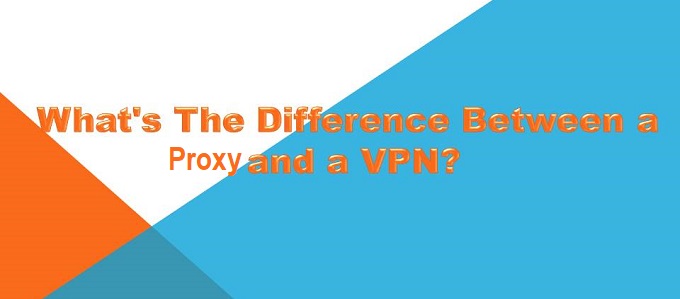
Difference Between a Proxy and a VPN | Proxy, and VPNs both hide your IP address by connecting you to a distant server. However, although they both offer similar services, VPNs and proxies are significantly different. VPNs cost you money, but they also provide encryption of your data and have an array of other privacy features. However, proxy servers are free to use, but they are often limited to their use cases.
So should you get a VPN or Proxy? Let’s take a closer look at our full Proxy vs. VPN review.
How do a Proxy and VPN server work
VPNs and proxies hide your IP address, protecting your privacy while you’re online? You may use a VPN or a proxy server to keep your online activities hidden, whether you’re surfing the internet, reading your emails, or playing games.
Both of these applications, however, function in a different way. After the VPN download is completed on your device, it provides advanced encryption to ensure complete privacy while you’re online. Furthermore, it operates on a system level; once the VPN is started, all of your traffic, from your browser to your programs, are encrypted and assigned a new IP address. Therefore it works with browsers as well as applications like Spotify or Steam.
On the other hand, a proxy merely provides a rudimentary amount of privacy. It just masks your actual IP address and does not encrypt your communication. Therefore you are still susceptible to cyberattacks.
Main differences between a proxy and a VPN
| VPN | Proxy | |
| Complete encryption data | Yes | No |
| Works on the system level | Yes | No |
| Cost Money | No | Yes |
| Reliable connection | Yes | Not always |
| Good speeds | Yes | Sometimes |
| Extra features | Yes | No |
Can VPN and Proxy be used together?
If you have a VPN, you don’t need a proxy. There’s no implication to using proxies and VPNs together because they both disguise your IP address. In reality, if you already use a VPN, connecting to a website or app through a proxy server is an extra step that may slow things down without giving any more protection. However, you can use both of them together if you want to, but they will only slow your internet speed and hog down your device.
VPNs vs. proxies: which is better?
When it comes to VPNs and Proxies, they both have different use-cases. If you decide between a proxy and a VPN for security concerns, the VPN comes out on top. VPN provides you with several levels of encryption with a no-log policy to mask all your online activities, making it harder for hackers and third parties to exploit your data.
However, if you just want to mask your IP address for one particular website and do not care much about privacy, a Proxy will be better for you. They are usually inexpensive and offer faster speed when compared to VPNs.
Bottom Line
A VPN offers all-around protection by masking your IP address and preventing third parties from exploiting your personal data. They also have other features like ad blocking, enhancing your overall browsing experience. But reliable VPNs charge a monthly subscription fee, but when you factor in that one Surfshark VPN subscription can be used on all your devices, the price no longer seems too high.



















